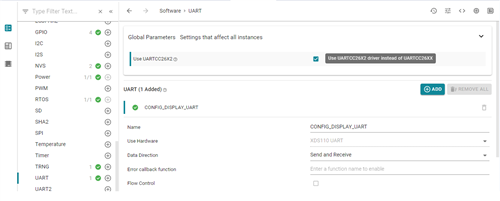Other Parts Discussed in Thread: SYSCONFIG
Tool/software: Code Composer Studio
Hi i am reading characters from uart into cc2652. I am using UART_read(uart, &input, 1) to receive characters one byte at a time. Is there any function that can receive a string until a specific character such as '\n'. please suggest if there is something equivalent to readstringuntil("\n").
Thanks,
shivam


